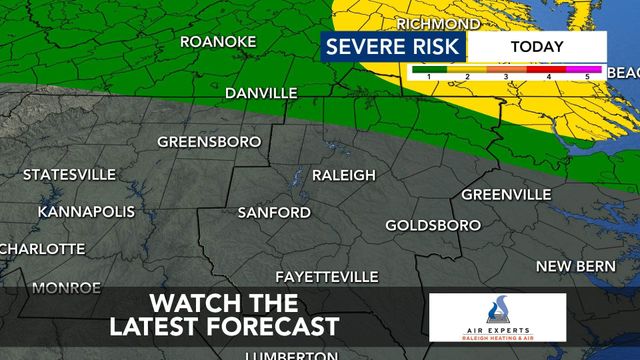Farm bill, loosening wetlands protections, clears NC House

Potentially millions of acres in North Carolina would open to development again under a wide-ranging bill the North Carolina House passed Wednesday over objections that the measure sacrifices wetlands needed to prevent flooding and absorb pollution.
Senate Bill 582, the legislature’s biannual farm act, would also lower fines for cutting timber in buffer areas near bodies of water and add a new requirement that the state’s Veterinary Medical Board give veterinarians a week’s written notice before inspecting their offices.
Democrats took issue with several provisions in the 28-page measure, including those two, but the dimming wetlands protections took center stage.
“I don’t think I’m overstating it to say this could be devastating to our state’s ability to deal with flood resiliency, with water quality,” said state Rep. Pricey Harrison, D-Guilford.
Bill supporters said that was overstating it.
"Our wetlands are absolutely essential,” Rep. Jimmy Dixon said. “What we want to make sure - as critical as farmland is, as critical as building land is, the way we're growing ... we want to make sure that we don't unnecessarily create new wetlands."
The bill says state regulators can’t adopt more stringent protections than federal law. Combined with a recent U.S. Supreme Court decision, and existing state law that has been part of a back-and-forth regulatory battle in North Carolina, that limits state and federal protections on lands that are no longer considered to be regulatable wetlands or streams under federal law.
Lawmakers said they didn’t have a solid estimate of how much land would be opened to development, but the Southern Environmental Law Center said it would likely be millions of acres statewide.
Bill sponsors said these lands, many of which aren’t wet year-round, have been over-regulated for years, frustrating farmers. Dixon, R-Duplin, said regulators who visited a farmer friend of his treated tire tracks in a field like a stream.
The state’s building industry, among others, pushed for this part of the bill. N.C. Home Builders Association General Counsel Mike Carpenter said the “overwhelming majority of wetlands in North Carolina” will stay protected. This bill, like the U.S. Supreme Court case, deals with ditches and wetlands that aren’t adjacent to a body of water, he said.
'What we're talking about here is isolated wetlands,” Carpenter said. “Ephemeral streams. Things that only run when it rains. ... It's not as gloom and doom and disastrous as our friends in the environmental community would like to believe it is."
State Rep. Deb. Butler, D-New Hanover, asked colleagues to vote against the bill. She said wetlands are “magic,” trapping sediment, absorbing flood waters and filtering out pollutants.
“We would do well to leave Mother Nature alone to do her job,” she said.
The measure passed the House 78-37, with eight Democrats joining the Republican majority to vote yes. The vote moves the bill back to the North Carolina Senate, which can sign off on changes the House made during the bill’s legislative journey to finalize the language.
Sen. Brent Jackson, R-Sampson and the bill’s initial sponsor, said he expects the Senate to agree with those changes, which would send the bill to Gov. Roy Cooper.
If Cooper vetoes the bill, legislative Republicans have the votes they need to overturn that veto and make the bill law whether Democrats who voted for it side with them or not.









